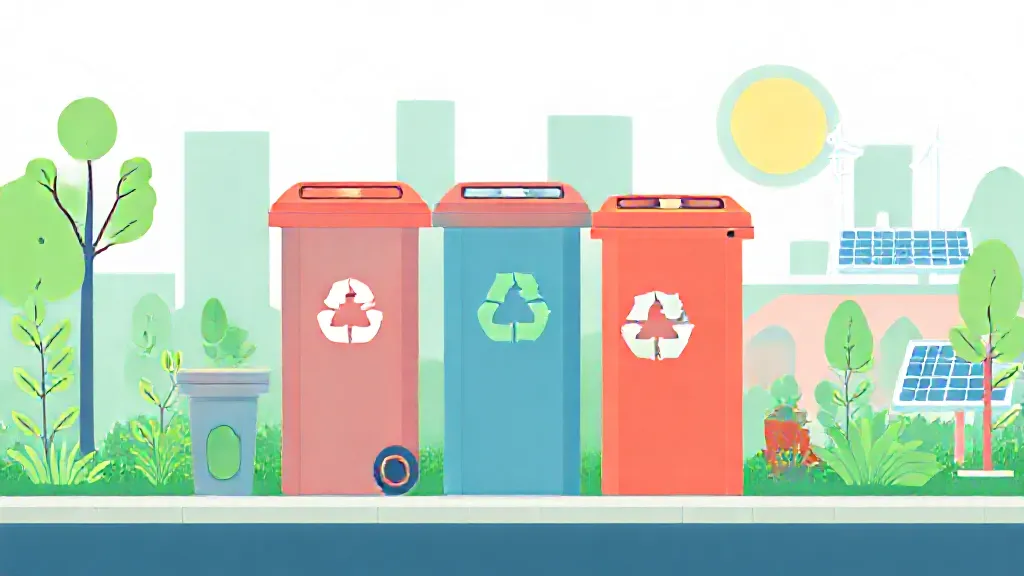Waste management is a critical issue that affects not only urban environments but also rural areas, impacting public health and the ecosystem. As populations grow and consumption patterns change, the volume of waste produced increases, necessitating more efficient and sustainable waste management practices. Technology plays a pivotal role in addressing these challenges, offering innovative solutions that can enhance the efficiency of waste collection, processing, and recycling.
Smart Waste Collection Systems
One of the most significant advancements in waste management technology is the implementation of smart waste collection systems. These systems utilize sensors placed in waste bins to monitor fill levels in real-time. This data is transmitted to waste management companies, enabling them to optimize collection routes and schedules.
For instance, cities like Barcelona and San Francisco have adopted smart bins that alert collectors only when they are full, reducing unnecessary trips and fuel consumption. This not only improves operational efficiency but also minimizes the carbon footprint associated with waste collection.
Recycling Technologies and Innovations
Recycling is a crucial component of waste management, and technology has revolutionized how materials are sorted and processed.
Advanced sorting technologies, such as optical sorters and AI-driven robots, can identify and separate recyclables from general waste with high accuracy. For example, companies like AMP Robotics have developed AI systems that can recognize different types of materials, significantly increasing the efficiency of recycling facilities. Furthermore, innovations in chemical recycling allow for the breakdown of plastics into their original monomers, enabling the creation of new products without the degradation of quality.
Waste-to-Energy Technologies
Another promising technology in waste management is waste-to-energy (WTE) systems. These facilities convert non-recyclable waste materials into usable energy through processes like incineration, gasification, or anaerobic digestion. By harnessing the energy produced from waste, cities can reduce landfill use and generate renewable energy.
Countries like Sweden have successfully implemented WTE technologies, where approximately 50% of waste is converted into energy, providing a sustainable solution to waste disposal while addressing energy needs.
Mobile Applications for Waste Management
The rise of mobile technology has also impacted waste management positively. Numerous applications have been developed to educate citizens about proper waste disposal and recycling practices.
For instance, apps like "Recycle Coach" provide users with information on local recycling guidelines and schedules. Additionally, platforms that connect users with local waste management services facilitate the proper disposal of hazardous materials, ensuring they are handled safely and responsibly. These applications promote community engagement and awareness, fostering a culture of sustainability.
Data Analytics and Waste Management
Data analytics plays a crucial role in improving waste management strategies. By analyzing patterns in waste generation and disposal, municipalities can make informed decisions about resource allocation and policy development. For example, cities can use historical data to predict waste generation trends, allowing them to plan for seasonal fluctuations and allocate resources more effectively.
This data-driven approach not only enhances operational efficiency but also helps in developing targeted educational campaigns to reduce waste generation at the source.
The Role of Drones and Robotics
Drones and robotics are emerging technologies that can significantly improve waste management processes. Drones can be employed for aerial surveillance of landfills and illegal dumping sites, providing real-time data that helps authorities monitor waste disposal practices.
Robotics, on the other hand, can automate labor-intensive tasks in waste sorting and processing, reducing human error and increasing productivity. Companies like ZenRobotics are already using robots to sort construction and demolition waste, showcasing the potential of these technologies in the waste management sector.
Public-Private Partnerships in Waste Management
The integration of technology in waste management often requires collaboration between public and private sectors.
Public-private partnerships (PPPs) can lead to the development and implementation of innovative waste management solutions. For instance, cities can partner with tech companies to pilot smart waste collection systems or recycling technologies. These collaborations can leverage the strengths of both sectors, ensuring that waste management systems are efficient, sustainable, and responsive to community needs.
Future Trends in Waste Management Technology
Looking ahead, the future of waste management technology is promising, with continuous advancements on the horizon. Innovations in blockchain technology, for instance, could enhance transparency in waste management processes, tracking materials from disposal to recycling. Furthermore, the integration of the Internet of Things (IoT) can lead to more interconnected waste management systems, where data flows seamlessly between waste generators, collectors, and processors.
As society increasingly prioritizes sustainability, the role of technology in waste management will continue to evolve, driving the transition towards a circular economy that minimizes waste and maximizes resource efficiency.
